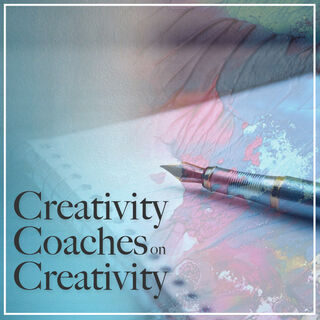Creativity
Giving Yourself Permission to Create
Creativity coach Clare Bunting provides top tips on the creative life.
Posted May 3, 2021 Reviewed by Jessica Schrader
Key points
- Creativity is often accepted as part of the normal process of growing up.
- But as adults, we often feel guilty about taking time away from other responsibilities for our creative endeavors.
- However, we need to stop feeling bad about meeting our creative needs; being creative is mentally healthy and beneficial in many ways.

In order to create, we must have permission from ourselves to create. Adults often withhold that permission, arguing that creating is an indulgence and maybe something worse. What right do I have to make a little drawing or pen a poem when the living room needs vacuuming and the dishes are piled in the sink?
Well, of course, you do have that right, but you may have to sit yourself down and remind yourself that creating is nothing like an indulgence. It is one of the top ways that we express ourselves, share our thoughts and feelings, and make sense of the world. In today’s post, called “Giving Yourself Permission to Create,” creativity coach Clare Bunting explores this theme.
Clare explained:
How much time do you spend creating, whether that’s by making art, writing, or singing in the shower? I love creativity, but up until about five years ago, I denied myself consistent time to do the thing I most enjoyed.
When I was 9, I would sit for hours writing my book series High Cliff Towers, which was about a boarding school for rich kids who arrived at the start of term by helicopter. Of course, I didn’t question why I was dedicating so much time to this, and nobody quizzed me about it either, because children are meant to be creative.
And when 15-year-old me wrote heavy-hearted poems, nobody thought this was an unusual use of my time. Expressing yourself through art is an important part of being a teenager. I must admit that when I announced I was going to study creative writing at university, some people did raise their eyebrows. But once they got used to the idea, they didn’t ask me why I spent so much time creating. They understood I was doing what I was there to do.
I think it was upon entering proper adulthood that guilt kicked in, and I began to allow myself less and less time to do creative activities. Sure, I now had more responsibilities, but did I really need to deny myself a writing session so I could work late, do life admin, or meet a friend for a drink on that specific day, at that specific time? Of course not.
But the looks on people’s faces if I tried to tell them I had a prior engagement and that engagement was writing made me feel that choosing creativity wasn’t socially acceptable. Somewhere on the journey from childhood to adulthood, I’d absorbed the myth that being creative is self-indulgent, and I stopped making creativity a priority.
Do you put creativity first? Or do you tell yourself you haven’t got time because there are more important things to do? You’ve got kids who need you. There’s housework to get done. You have to go to that work social.
If you wrote a time inventory of everything you did during your day, including sleeping, would it really contain 24 hours of must-do tasks? If you’re anything like I was, taking care of your responsibilities doesn’t take up as much time as you think it does, and if you let go of the guilt, there are always things you can strike off the list or move to another day.
In my late 20s, I studied for a second degree while working in an office that was an hour-and-a-half drive from home. I banned myself from writing and reading fiction, so I could spend every spare hour studying. But I studied far less than I’d intended to because I felt so drained. The more I denied myself creative escape, the more miserable I became and the less fun I was to be around.
You can always find pockets of time, but this won’t help much if you’re wiped of energy. These days, I give myself permission to create every day, even if that’s just half an hour of journaling, and I’ve let go of the guilt. The next time you think about denying yourself time to create, think about how it would feel to ban yourself from exercising. You wouldn’t feel ashamed to work out because it’s good for our bodies and minds. Well, the same is true of creativity.
Clare Bunting is a creativity and life coach who writes books for kids. You can connect with Clare at www.lifemanifesto.co.uk.




